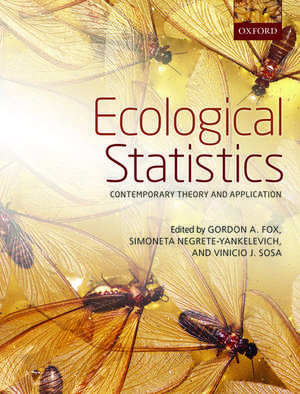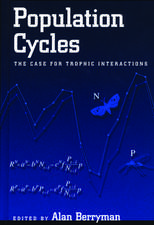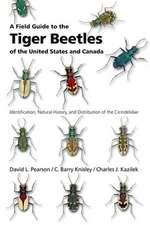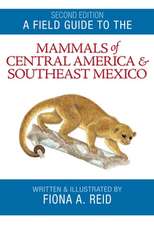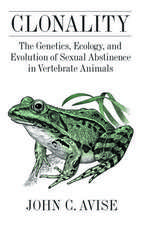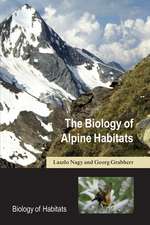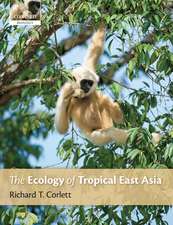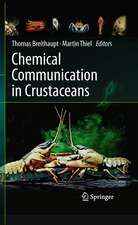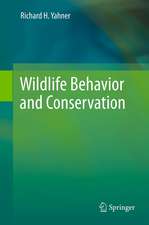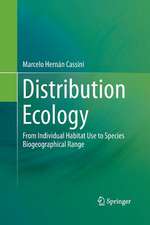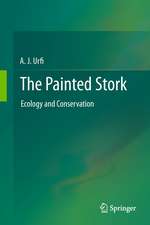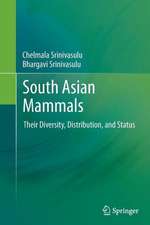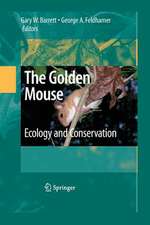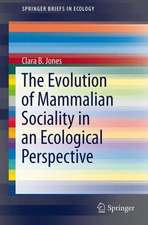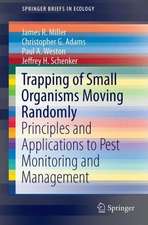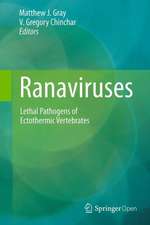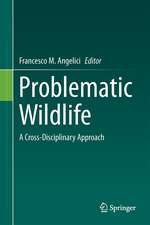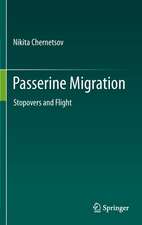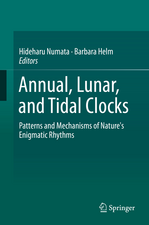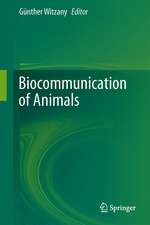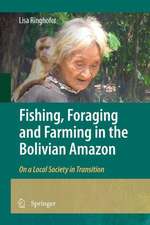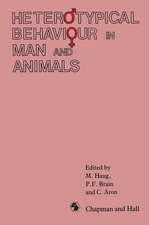Ecological Statistics: Contemporary theory and application
Editat de Gordon A. Fox, Simoneta Negrete-Yankelevich, Vinicio J. Sosaen Limba Engleză Paperback – 29 ian 2015
| Toate formatele și edițiile | Preț | Express |
|---|---|---|
| Paperback (1) | 313.03 lei 31-38 zile | |
| OUP OXFORD – 29 ian 2015 | 313.03 lei 31-38 zile | |
| Hardback (1) | 842.40 lei 31-38 zile | |
| OUP OXFORD – 29 ian 2015 | 842.40 lei 31-38 zile |
Preț: 313.03 lei
Nou
Puncte Express: 470
Preț estimativ în valută:
59.90€ • 62.54$ • 49.57£
59.90€ • 62.54$ • 49.57£
Carte tipărită la comandă
Livrare economică 24-31 martie
Preluare comenzi: 021 569.72.76
Specificații
ISBN-13: 9780199672554
ISBN-10: 0199672555
Pagini: 406
Dimensiuni: 190 x 246 x 20 mm
Greutate: 0.75 kg
Editura: OUP OXFORD
Colecția OUP Oxford
Locul publicării:Oxford, United Kingdom
ISBN-10: 0199672555
Pagini: 406
Dimensiuni: 190 x 246 x 20 mm
Greutate: 0.75 kg
Editura: OUP OXFORD
Colecția OUP Oxford
Locul publicării:Oxford, United Kingdom
Recenzii
We would be glad to adopt this as a textbook and recommend it as a resource for graduate students who need to strengthen their understanding of modern statistical approaches that can inform ecological problems.
In this well-written and well-edited book, the authors successfully convey an understanding of statistics, rather than just a menu of statistical procedures. Ideas are explained preferentially by examples and illustration, and mathematical formalism is held at a minimum ... This book is a source of coherent statistical understanding.
This is a rich selection of the new canon of ecological statistics. Most examples are illustrated with the relevant R code, all of which is available online. As a result, this is not just an introduction to the theory underlying new approaches -- it is a hands-on introduction to their use! Importantly, the chapters -- though cross-referenced -- are self-contained. As such, many practising ecologists will be able to dip in to a chapter that covers a particular problem that they are facing. That is a real strength of this book and suggests that most ecological research groups will benefit from access to at least one copy.
Ecological Statistics: Contemporary Theory and Applications is an amazing piece of work that deftly performs the unenviable task of presenting the "need to know" methods of a complex field. ... This book would be a valuable addition to any course asking students to expand their statistical comfort zone, but also easily lends itself to self-study for those wishing to join the conversation of ecological statistics.
Ecological Statistics opens with a commendable introduction that makes some great points and provides an insightful big-picture perspective.
In this well-written and well-edited book, the authors successfully convey an understanding of statistics, rather than just a menu of statistical procedures. Ideas are explained preferentially by examples and illustration, and mathematical formalism is held at a minimum ... This book is a source of coherent statistical understanding.
This is a rich selection of the new canon of ecological statistics. Most examples are illustrated with the relevant R code, all of which is available online. As a result, this is not just an introduction to the theory underlying new approaches -- it is a hands-on introduction to their use! Importantly, the chapters -- though cross-referenced -- are self-contained. As such, many practising ecologists will be able to dip in to a chapter that covers a particular problem that they are facing. That is a real strength of this book and suggests that most ecological research groups will benefit from access to at least one copy.
Ecological Statistics: Contemporary Theory and Applications is an amazing piece of work that deftly performs the unenviable task of presenting the "need to know" methods of a complex field. ... This book would be a valuable addition to any course asking students to expand their statistical comfort zone, but also easily lends itself to self-study for those wishing to join the conversation of ecological statistics.
Ecological Statistics opens with a commendable introduction that makes some great points and provides an insightful big-picture perspective.
Notă biografică
Gordon Fox received his Ph.D. from the University of Arizona and was a postdoctoral fellow at the University of California, Davis. He is currently Professor in the Department of Integrative Biology at the University of South Florida. His research involves theoretical issues in ecology and population biology, and empirical studies of plant populations. He teaches at both the graduate and undergraduate levels, and supervises M.S. and Ph.D. students. He is co-author (with J. Gurevitch and S. M. Scheiner) of the textbook The Ecology of Plants, and co-editor (with C. K. Kelly and M. G. Bowler) of Temporal Niche Dynamics and Ecological Process. Fox is an associate editor of Ecology, and a Fellow of the American Association for the Advancement of Science (AAAS).Simoneta Negrete-Yankelevich received her doctorate from the University of Edinburgh, and was a postdoctoral fellow within the Conservation and Sustainable Management of Belowground Biodiversity project (GEF-UNEP-TSBF). She is currently a researcher in the Functional Ecology Network of the Instituto de Ecología A.C. in Mexico and a member of the Mexican National System of Researchers. She works on issues related to the temporal and spatial dimensions of disturbance in tropical agroecosystems. She coordinates and participates in research projects related to the long term effects of human disturbance on soil biota, fertility and functioning in the tropics. She teaches statistics courses for graduate students on linear models, spatial statistics, and multivariate statistics, and supervises M.S. and Ph.D. theses related to spatial issues in soil ecology.Vinicio J. Sosa received his Ph.D. from the University of Miami, and has an Applied Statistics Specialization from the Instituto de Investigaciones en Matemáticas Aplicadas y en Sistemas (IIMAS) at the Universidad Nacional Autónoma de México (UNAM). He is a researcher in the Instituto de Ecología A.C. in Mexico and a member of the Mexican National System of Researchers (SNI II). Sosa has extensive experience in applied ecological problems, especially on environmental impacts of infrastructure development. His current research focuses on the effect of landscape fragmentation on flying vertebrate communities, and on mutualistic relationships between columnar cacti and bats. He teaches graduate-level statistics courses for the Instituto de Ecología, A. C., and acts as consulting statistician within the Instituto. He is associate editor of Acta Zoologica Mexicana.
